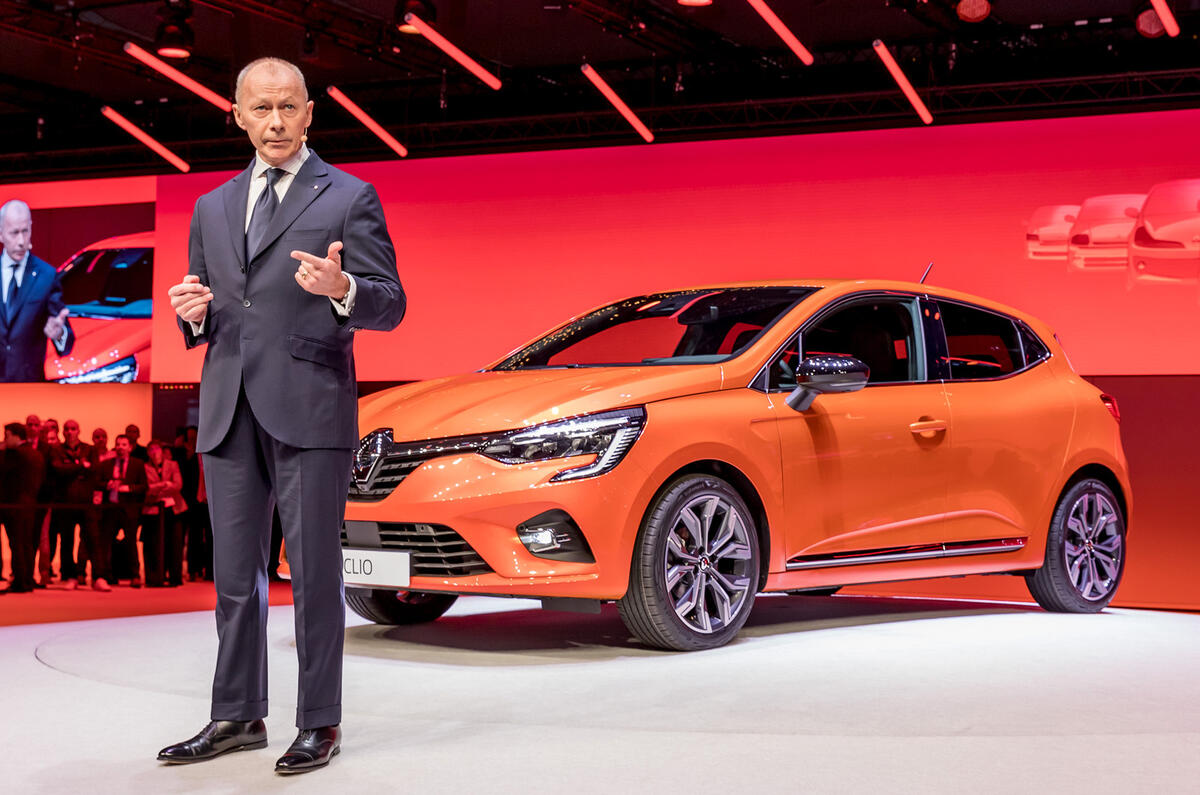I have met Thierry Bolloré just once, at last year’s Frankfurt motor show for just one hour - and not long before he was ousted from his role at the helm of Renault.
Undoubtedly there is only so much you can learn in such a short space of time, particularly as this was a roundtable interview, attended by roughly 20 journalists from around the world, all with their own regional perspectives and agendas.
But what do I recall?
Chiefly, I remember that Bolloré commanded respect from everyone around him, with his communications team and assistants ensuring that absolutely everything was on point ahead of his arrival. How else would you expect the man who led the firm to be treated, you might ask? But there was a palpable extra layer of detail that stuck firmly in my mind. It wasn’t toadying on their part, but rather an alertness to the fact that this was not a man whose time was to be wasted.
He was precise too, in ensuring he understood each question and in giving detailed but also quotable answers, a clinical confidence apparant that meant he was happy to tackle any topic thoughtfully but with brevity. He smiled but he didn’t laugh, which is probably how CEOs should interact with outsiders. He had a freedom about his manner that only comes with the self-confidence of being in the inner circle at the top of Renault for so long before taking the top job, most notably in trying to crack open the possibility of reigniting talks about a merger with FCA.
In all of the above respects there was an air of his predecessor, Carlos Ghosn, who of course he served loyally, but it would be wrong to take that parallel too far, not least as he carried his own style so naturally. This was a relatively small group of people, not a roomful as Ghosn would have commanded, and because of that it was less overwhelming, taken as an opportunity for him to answer questions rather than show how much he knew.
But as those questions rolled out, jumping from big picture views on the future of the industry to local production numbers in faraway places, you certainly got a sense that he knew the detail, and was a man who was happy to share what he believed, calmly, rationally, with no showboating. It rarely happens that an interview of that broad bandwidth can be entirely on the interviewee’s terms, but he was so precise that I’m not sure he uttered a word that he hadn’t already considered before he spoke it.
Of course, that may have been what went on to cost him the top job at Renault, in what he subsequently succinctly described as a “coup” and which insiders suggest was a result of his unwillingness to compromise as the relationship with alliance partner Nissan waivered. You could certainly sense that this was a man for whom facts mattered more than anything, and while there was absolutely no sense that he’d ever let you know his pulse had raised a degree in anger, not even a hint of a raised eyebrow, you could also be sure you’d always be left knowing exactly where you stood.
A leader then, in every respect, even if he had spent many years under Ghosn’s watchful eye. Broadly travelled, well versed in his business and precise, at ease, but clearly demanding. He will know that Ralf Speth is a tough act to follow, but I strongly suspect that he has already formulated exactly how he plans to succeed him.
Read more




Join the debate
Add your comment
I expect him to get rid of